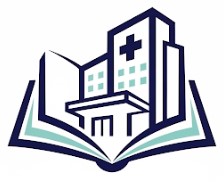| A stroke is a medical emergency. Quick treatment could save your life or greatly improve your chances of recovery. If you suspect someone is having a stroke, call 9-1-1 immediately! |
|
|
What is a stroke?
Strokes occur when a blood vessel carrying oxygen and nutrients to the brain bursts or is clogged by a blood clot or other particle. When blood flow is interrupted, the brain is deprived of oxygen. Nerve cells in the affected area die within minutes. This can lead to dysfunction in the rest of the body because the brain can no longer control those areas. These dead brain cells aren’t replaced, so the devastating effects of a stroke are often permanent. It’s important to get the best possible medical care immediately if you suspect someone is having a stroke. The Hospital of Saint Raphael Stroke Team is available 24 hours per day to provide the most sophisticated care possible. Saint Raphael’s Stroke Team
Seconds count when your brain is under attack. That’s why a team springs into action when stroke patients arrive in Saint Raphael’s Emergency Department. The team includes everyone from neuro-interventional radiologists to special nurses and therapists, so patients receive complete, compassionate care to aid in their recovery. Team members:
Stroke warning signs and symptoms Call 9-1-1 immediately if you notice any of the following symptoms:
Often strokes are preceded by mini-strokes or transient ischemic attacks. A person who has had a TIA is almost 10 times more likely to have a stroke. TIA symptoms are similar to those of an actual stroke, and should be treated with the same urgency: Dial 9-1-1. Stroke facts and figures
Reduce your stroke risks by:
For general information about stroke, call 1-888-4STROKE The American Stroke Association’s “Stroke Connection” program provides resources and support to stroke survivors, their families and caregivers. For information on life after stroke, please call the Stroke Family “Warmline” at 1-800-553-6321. |
|

 Back to Emergency Services
Back to Emergency Services